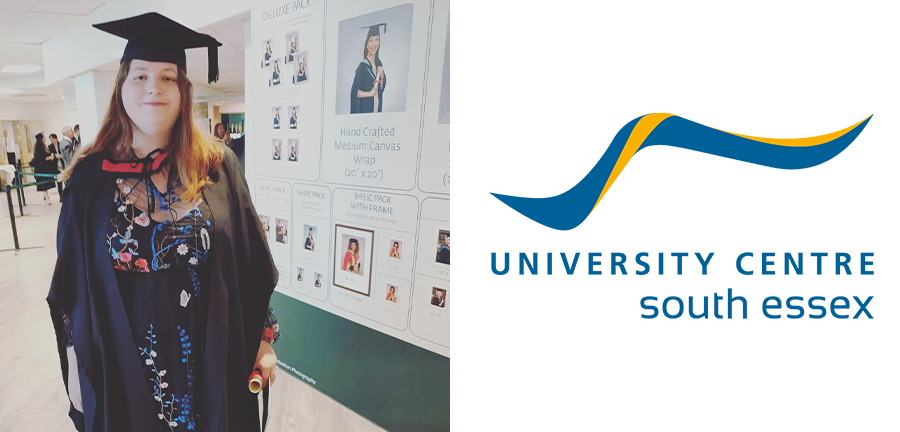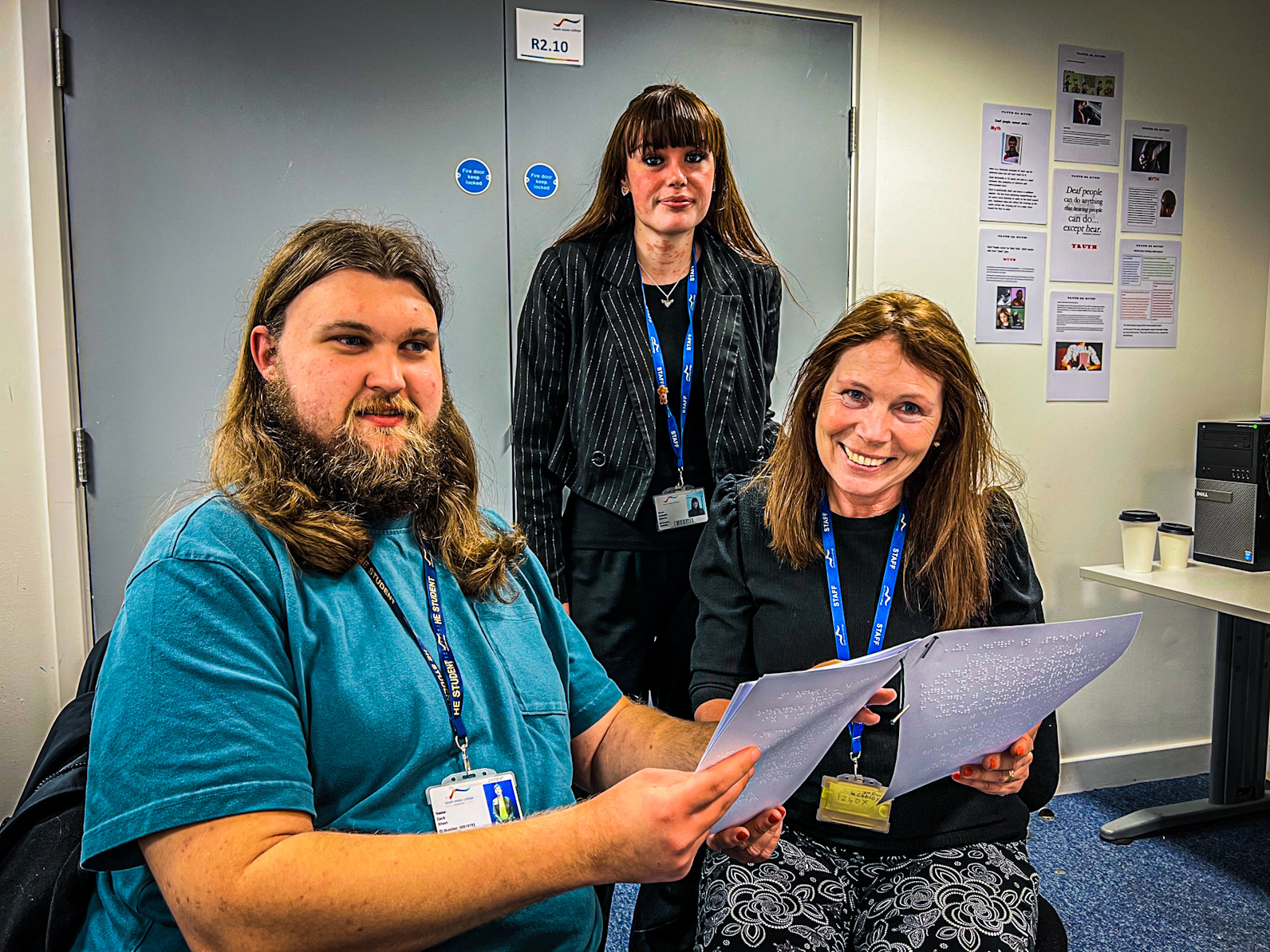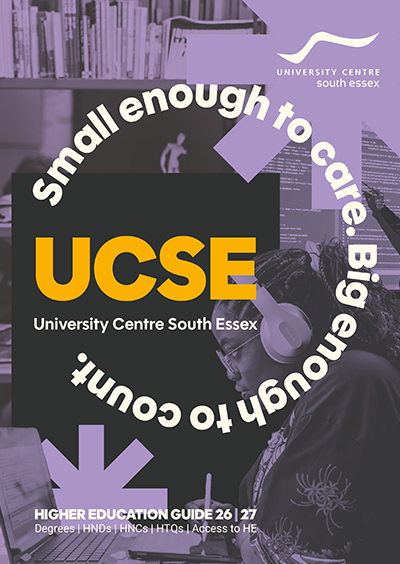Level 6
Criminology & Forensic Investigation BSc (Hons)
| Duration | Age Group | Study | Start | Cost | Available Locations |
|---|---|---|---|---|---|
| 3 YEARS | ADULT | FULL TIME |
15/09/2026 |
£9,535 per year * | Southend Campus, Thurrock Campus |
| Duration | Age Group | Study | Start | Cost | Available Locations |
|---|---|---|---|---|---|
| 3 YEARS | ADULT | FULL TIME |
15/09/2026 |
£9,535 per year * | Southend Campus, Thurrock Campus |
Share On
Overview
Course code: LF64
This Programme is validated by the Univeristy of East Anglia
Aimed at those looking to progress to a career in criminology forensic investigation or investigative policing, Criminology & Forensic Investigation BSc (Hons) will enable you to understand the core causes of criminal behaviour and the principles of crime scene investigation.
Why study this degree at University Centre South Essex?
- You will be taught by tutors with industry experience
- You will receive industry-related work experience
- The course allows you to pursue a number of career and further education paths
This course is underpinned by the four key distinct disciplinary strands of Forensic Investigation Criminology Criminal Justice and Work Related Skills/Experience. These four strands enable you to analyse contemporary issues from a range of multidisciplinary perspectives providing essential transferable skills for employment.
In addition the course provides you with a well-rounded knowledge base application and experience of work-re- lated skills for progression onto higher level educational courses or to relevant industry employment.
Entry Requirements
You will need a minimum of 64 UCAS Tariff Points or above from one or more of the following:
- A levels
- BTEC Level 3 Extended Diploma/Diploma/Subsidiary Diploma/Certificate
- BTEC National Award/Certificate/Diploma
- International Baccalaureate
- Access to Higher Education Diploma (minimum 30 credits at Merit or above)
- GCSE English Language and Maths at Grade C (old specification) or Grade 4 (new specification) or above OR a Level 2 equivalent such as Functional Skills.
For any qualification not identified above the HE Admission Team will determine equivalences through UKNARIC.
Applicants wishing to be considered for entry to the second year of study or wishing to import credits or evidence of prior learning into the course for which they are applying will be considered in accordance with the awarding bodies policy on Accreditation of Prior (Experiential) Learning.
DBS Check (Disclosure and Barring Service)
Successful applicants for this programme may require an enhanced Disclosure and Barring Service (DBS) check before commencing practice placement in Year 3. DBS identification documents are verified by trained staff in line with DBS guidelines as part of the admissions process.
The administration charge for this service will be incorporated into the course fees.
Important:
Disclosure and Barring checks cannot be carried out for applicants who are not or have never been resident in the UK. Applicants who reside or previously have resided overseas will be required to provide a criminal record check or certificate of good conduct from their country or countries of residence prior to entry on to the course.
Course Structure
Year one modules (Level 4)
- Introduction to Criminology
- Introduction to Policing
- Introduction to Forensic Science
- Introduction to the Criminal Justice System
- Introduction to Crime Scene Investigation
Year two modules (Level 5)
- Criminological Research Methods
- Principles of Criminal Investigation
- Cybercrime and Digital Investigation
- The role of the Expert Witness
- Serious and Serial Offenders
- Taphonomy and Forensic Entomolog Year three modules (Level 6)
- Dissertation
- Professional Development
- Terrorism Genocide and Organised Crime
- Forensic Human Identification
- Aspects of Forensic Psychology
Work placements
40 hours at Level 6 of formally agreed workplace learning within a relevant criminological or forensic investigation field.
There is a dedicated Practice Learning team to support students with the placement process.
Teaching & Learning
Contact hours: 13 hours per week over two days plus independent study (suggested 30 hours per week).
Assessment & Feedback
You are taught through a combination of lectures seminars and workshops which enable you to discuss and develop your understanding of the disciplines of Counselling and all professional aspects pertaining to the counselling industry.
A range of appropriate facilities including the library and online learning resources the Learning Resource Centre and the Forum supports your independent learning.
You will receive on-going feedback as part of your one-to-one sessions with your unit teachers. You will also receive summative feedback on all formal assessments undertaken by coursework. Feedback is intended to help you learn and you are encouraged to discuss it with your unit leader. Feedback can be given in a range of different ways in order to accommodate a variety of learning styles and aptitudes including group critiques, recorded verbal feedback and written feedback.
Feedback on the Final Major Project/Dissertation module in Year three is provided throughout and through supervision meetings as scheduled.
Course Cost
Adult,
full_time:
£9,535 per year
Fees are per academic year for Home/UK students.
The following course-related costs are included in the fees:
- Loan of Personal Protective Equipment required for practical sessions
- Provision of crime scene protective coveralls
- An allowance of printing credit
Additional course costs can be found here
What Next...
Potential career routes include working in mainstream policing (possibly as an uniformed officer or scenes of crime officer) joining the Police Grad- uate scheme working within the criminal justice system as a solicitor within HM prison and probation service and within financial and cybercrime investigation. Graduates from this degree programme may also seek employment in related areas such as teaching after a period of further study.
Further study options include:
- MA/MSc Criminology
- MSc Forensic Science
- MA/MSc Forensic Psychology
- MA Social Work
You could also train to teach the subject by studying the PGCE available at University Centre South Essex.
Graduate destinations
Employment from previous graduating cohorts have included roles within Essex and Metropolitan Police disaster victim identification counter terrorism within financing teaching domestic abuse co-ordinators laboratory testing prison workers crime scene investigators and within human rights groups.
Students have also progressed on to higher level training and have entered Masters Qualifications in Criminology Terrorism Studies Digital Forensics Anthropology and Research. In addition graduates of the programme have also undertaken teacher training and have achieved either QTS or QTLS enabling them to take up roles in mainstream schools across the primary secondary and further education sectors.
Success Stories...
The course was very interesting and unlike other courses I had seen at other universities. Also, the centre was close to home and had multiple options for travel.

My name is Taylor Skevington, I am 23 years old, I studied Criminology & Forensic Investigation BSc (Hons) at University Centre South Essex from October 2017 to June 2020 and this is my story.
I took my A-Levels at Seevic College in English Language and Literature, Anthropology, Sociology and Psychology and applied for the degree straight after.
I have gone on to do a MA Criminology degree at the University of Essex and achieved a Distinction. I am now a 1st year PhD student in Criminology at Essex.
I have recently finished a part-time position as a research officer on the Understanding Domestic Abuse Perpetrators Project for the Home Office.
I was entrusted to do research for and write the literature review of the project and was also given administrative tasks for the overall project.
My PhD supervisor gave me the position as they were one of the researchers involved in the project and thought the topic was close to my own research.
The course was very interesting and unlike other courses I had seen at other universities. Also, the centre was close to home and had multiple options for travel.
The module on Personal Development was extremely helpful as it gave us tips on important skills such as writing your CV and job interviews. The work placements during the third (and last) year were also good experience for careers in the discipline.
Higher education gives you the opportunity to learn more about a subject you are passionate in and to further your personal development.
I gained valuable timekeeping and presentation skills because of the multiple types of assignments that were assigned. It also taught me skills in writing and research, especially important in further education.
My favourite memory of doing my degree was being in lectures with my peers as it was always a welcoming and fun atmosphere.
Not only was my degree interesting but my lecturers were extremely supportive and constructive in their criticisms.
My aim is to become a researcher/academic in criminology/sociology.
My time at the college helped me build my confidence in my work and in communicating with others.
For more information on the Criminology and Forensic Investigation: www.southessex.ac.uk/course//criminology-and-forensic-investigation-bsc-hons-1

I would say to anyone who has a disability and was thinking of studying at South Essex College Group ‘just go for it, take the shot even if you are nervous.
My name is Zack Short and I am studying BA (Hons) Criminology and Forensic Investigation at the University Centre South Essex.
I started at the college in 2017 and did a Level 2 Diploma in Applied Science course. It was a challenge at first with my visual impairment but eventually I was able to progress to the Level 3 Extended Diploma in Applied Science, which I did for the next two years. I had some fun in that class and met some really good people.
I then chose to progress to a BSc (Hons) Criminology & Forensic Investigation which I thought could lead to an interesting career in the criminological field. My support staff are amazing, they have dealt with me for nearly seven years so we know each other pretty well.
My visual impairment isn’t related to the eyes, it is related to a skin condition called Pseudoxanthoma Elasticum (PXE), which is extremely rare. At the time I was diagnosed back in 2010/2011 only about 250 people had it, that’s how rare it is. It has numerous different affects, but in my case it has affected my eyes quite badly and parts of my brain. In recent years I’ve gone colour blind due to over strangulation of nerve endings and blood loss in the eye so my eyes weren’t getting enough oxygen and couldn’t function correctly. I get severe headaches and eye strains if I push myself a bit too hard.
As I mentioned earlier, I get amazing support from the communicators here at SECG. They are saints because they get the work done and even if they are under stress, they get it out on time which is phenomenal. They have saved me more than once. I get help from scribes who take notes for me, I can get help setting up equipment and measurements or modified rulers. The communicators here provide tactile graphs, braille sheets etc.
I would say to anyone who has a disability and was thinking of studying at South Essex College Group ‘just go for it, take the shot even if you are nervous.’ In the future I want to go into a criminology field like crime analytics, theory or crime policies where you gather all the numbers and facts behind the crime scenarios.
Zack was supported by Debbie Gale (Educational Communicator) who has been at his side for the last six years, throughout his Level 2 Diploma in Applied Science, then Level 3 Extended Diploma in Applied Science, and finally throughout his Degree BSc (Hons) Criminology & Forensic Investigation. He also achieved his GCSE English whilst here at the college. Carmen Griffin (Educational Communicator) has supported Zack throughout secondary school and all through college and says that so to be able to see his final educational journey and progress here at the college over the last year and half has been fantastic.





